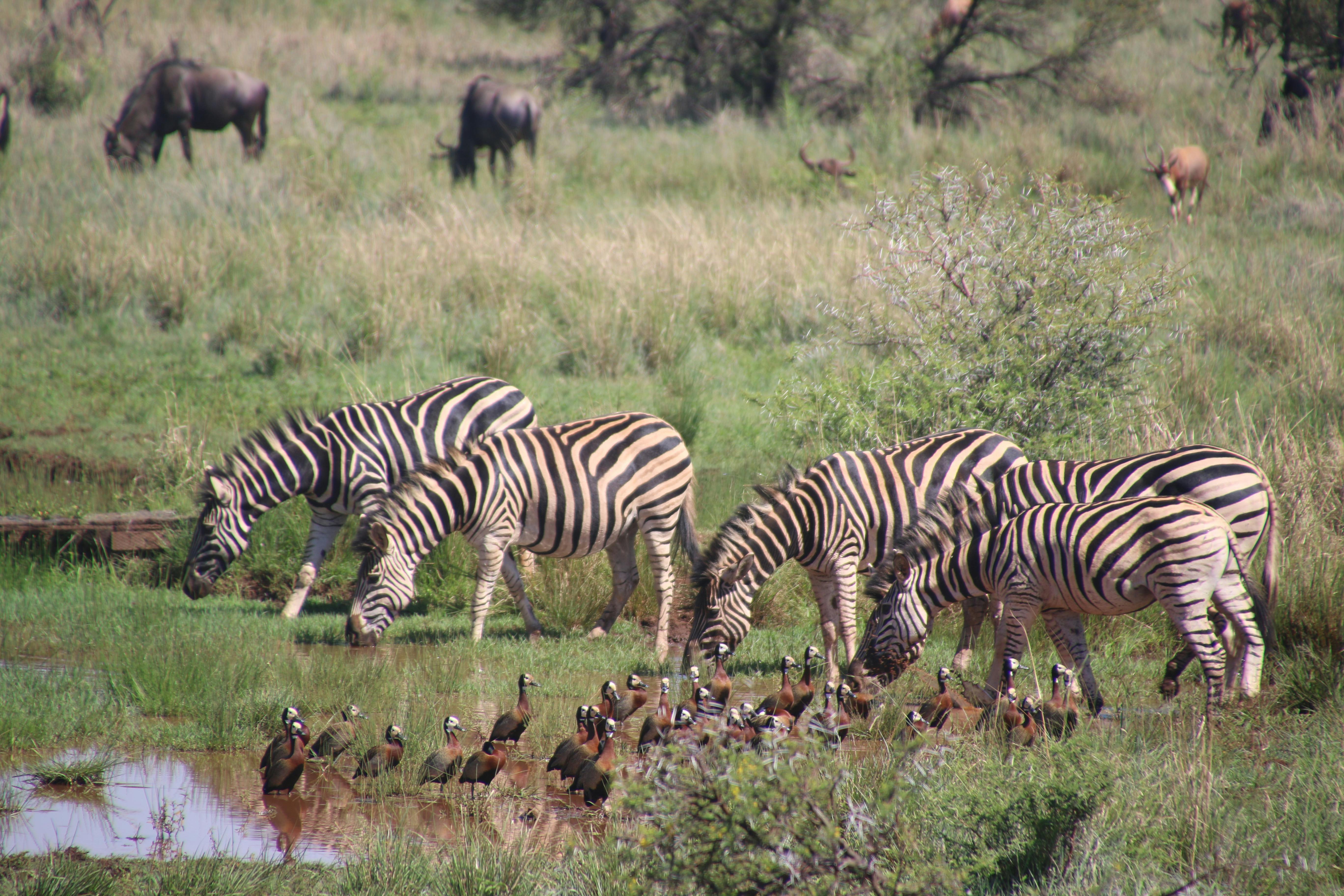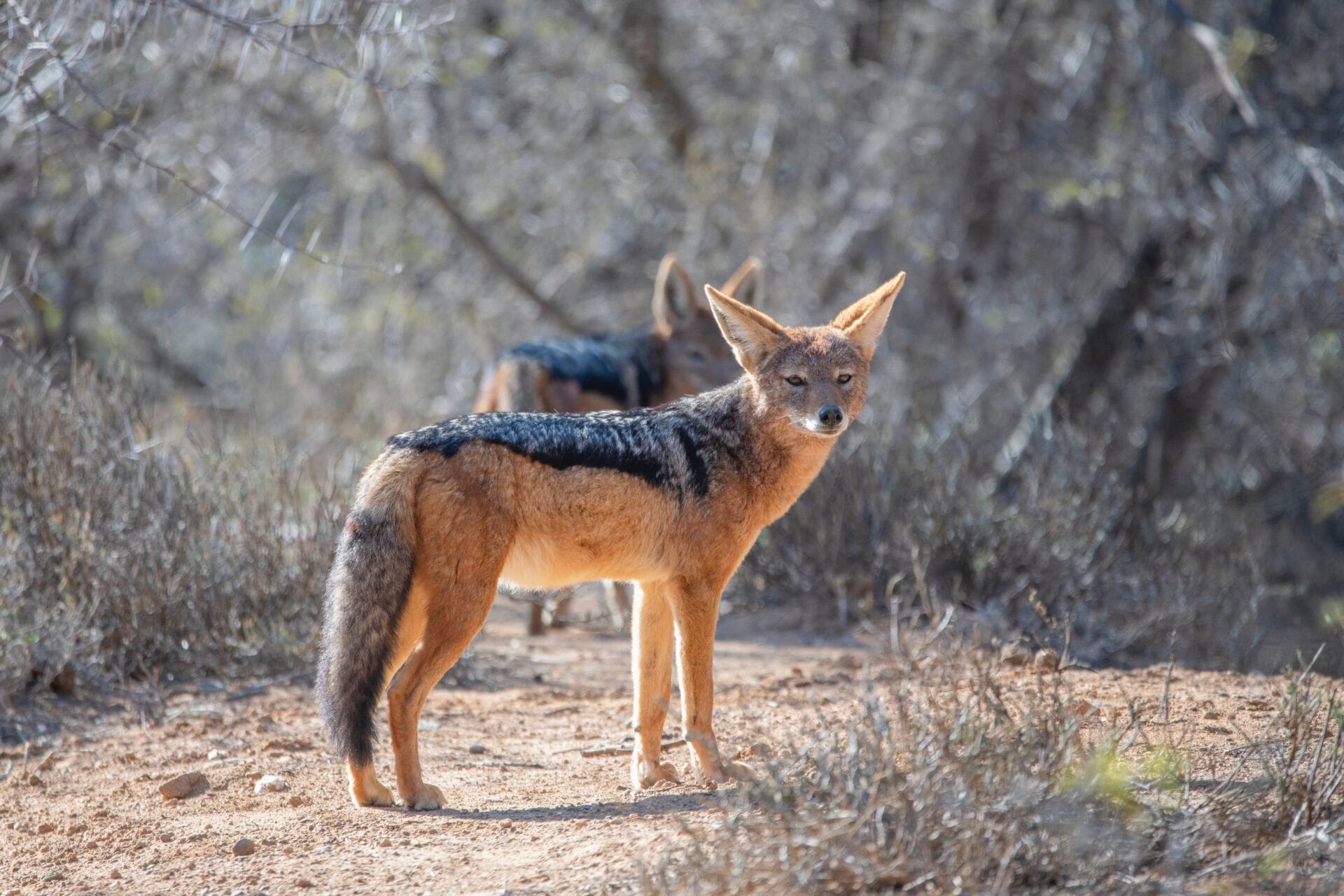Protecting blueberry bushes from animals is an important part of successful blueberry farming. Animals such as birds, deer, rabbits, and other small mammals can damage or even destroy your blueberry crop if they are not kept away. The good news is that there are a variety of methods to protect your blueberry bushes from animals. In this article, we will discuss some of the best ways to protect your blueberry plants from animals.To protect blueberry bushes from animals, there are a few steps you can take. Firstly, make sure the blueberry bushes are enclosed in a fence or cage. This will help keep larger animals like deer from being able to access the bushes. Secondly, if possible, use motion-activated sprinklers to deter animals from coming near the bushes. Finally, use natural deterrents such as chili pepper powder or strong-smelling essential oils to keep smaller animals away.
Detering Animals from Blueberry Bushes
Animals can be a major threat to blueberry bushes, raiding them for their sweet, juicy fruits. To protect your blueberry bushes, it is important to deter animals from entering your garden. There are several ways to do this, including physical barriers, sound and smell deterrents, and repellents.
Physical barriers such as fences can be used to keep animals away from the blueberry bushes. A fence should be at least six feet tall and should be made of a material that animals cannot climb over or dig under. It should also be placed in an area where it will not be visible to passersby.
Sound deterrents such as ultrasonic devices can also be used to keep animals away from the blueberry bushes. These devices emit high-frequency sounds that humans cannot hear but which will startle and scare away most animals. They should be placed in areas near the bushes where they are sure to make contact with the animal intruder.
Smell deterrents such as predator urine can also be used around the blueberry bushes. Predator urine contains hormones that make animals think there is a predator nearby and will cause them to avoid the area around the bush.
Repellents such as hot sauce or chili powder can also help deter animals from entering your garden and raiding your blueberry bushes. Sprinkle some of these repellents around the bush and reapply after rain or when washed away by wind or other weather conditions.
By using these methods, you can effectively deter animals from entering your garden and damaging your precious blueberry bushes!
Screening Blueberry Bushes From Animal Intrusion
Animals such as deer, rabbits, and birds are known to cause damage to blueberry bushes. To keep animals out of your blueberry bush, it’s important to install a physical barrier. The best type of physical barrier is a fence. Fences can be made from a variety of materials including wood, metal, and plastic mesh. When installing the fence, make sure that it is tall enough to prevent animals from jumping over it or burrowing underneath it. You should also make sure that there are no gaps in the fence that animals can squeeze through.
In addition to installing a physical barrier around your blueberry bushes, you can also use chemical deterrents. Chemical deterrents such as predator urine or mothballs can help keep animals away from your plants. These types of deterrents should be used sparingly and only when necessary as they may have adverse effects on the environment.
You can also plant certain plants around your blueberry bush to help deter animals from coming too close. Pungent herbs such as oregano or mint can help repel animals due to their strong scent. You can also plant thorny shrubs such as roses or holly around the perimeter of your blueberry bush as their thorns will discourage animals from coming too close.
Finally, you should check for any signs of animal intrusion on a regular basis. Look for holes in the ground near the base of your blueberry bush or chewing marks on the leaves and branches of the plant itself. If you find any signs of animal intrusion, take immediate action by installing a physical barrier or using chemical deterrents to keep them away from your plants in the future.
Physical Exclusion Methods for Protecting Blueberry Bushes
Physical barriers are effective ways to protect blueberry bushes from pests and wildlife. Fences can be installed around the perimeter of the garden to keep out larger animals, such as deer, rabbits, and raccoons. These fences should be at least six feet tall and made of sturdy materials such as metal or wood. Additionally, a mesh fence with small openings can be used to keep out smaller animals such as birds and rodents.
Another physical exclusion method is using netting to cover the tops of the bushes. Netting should have wide enough holes that it does not interfere with pollination or reduce air circulation for the plants. It will also prevent birds from eating the berries before they are ready to be harvested.
Finally, row covers can be used to exclude insects from accessing the plants. Row covers should be secured tightly around each bush to ensure that no pests can enter. It is important to note that some insects are beneficial for pollination purposes, so row covers should only be used when absolutely necessary.
Keeping Animals Away From Blueberry Bushes
Animals can be pesky pests when it comes to blueberry bushes. Not only do they eat the fruit, but they can also damage the foliage, stems, and flowers. To protect your blueberry bushes from animals, there are several repellents that you can use.
One of the most common repellents is a physical barrier such as a fence or netting. Fences should be at least four feet tall and made out of a material that animals cannot chew through or climb over. Netting should be tautly stretched around the blueberry bush and secured with stakes at all four corners.
Another solution is to use a commercial wildlife repellent. These products contain ingredients such as capsaicin, which is derived from chili peppers and has a spicy smell and taste that animals dislike. If you choose to use this type of repellent, make sure to read the label carefully for application instructions and safety precautions.
You can also try natural methods to repel animals from your blueberry bushes. These include using strong-smelling plants such as garlic, onions, marigolds, or chives planted near the bushes; spraying coffee grounds or hot pepper spray directly on the foliage; or sprinkling chili powder around the base of the plants.
Finally, if you have cats or dogs in your yard, letting them roam freely near your blueberry bushes may help keep other wild animals away due to their territorial nature. If you don’t have pets in your yard already, consider adopting one from an animal shelter – not only will it help protect your blueberries from other critters, but you’ll also be giving a home to an animal in need!
With these various methods of repelling animals from your blueberry bushes in place, you can rest assured that your plants will remain safe throughout the growing season!

Fencing Around Blueberry Bushes to Keep Animals Out
Protecting blueberry bushes from animals can be a challenging task, especially if the area is frequented by deer, rabbits, and squirrels. Fencing is one of the most effective ways to keep animals away from blueberry bushes. It can be constructed from a variety of materials such as chicken wire, plastic mesh, and even solid wood boards. The type of fencing used should depend on the type of animal that needs to be kept out and the size of the blueberry patch.
The height of the fence should be at least four feet tall for smaller animals like rabbits, and six feet tall for larger animals like deer. It is also important to ensure that the fence is secure enough so that animals cannot push or dig under it. If possible, use metal posts or rebar in combination with wooden posts to create a sturdier barrier. Additionally, adding an extra layer of mesh or wire at ground level can help to prevent digging around the base of the fence.
If possible, it is best to install the fence before planting blueberry bushes so that it can help protect them as they grow. This will also help to ensure that all areas of the patch are adequately covered by fencing material. It is also important to check for any potential gaps or holes in the fence regularly and repair them as soon as possible so that there are no weak spots for animals to enter through. With proper maintenance, a fence can provide effective protection against unwanted wildlife for many years.
Monitoring Blueberry Bushes for Animal Damage
It is important to monitor your blueberry bushes for animal damage in order to keep them healthy and productive. There are several things you can do to protect your blueberry bushes from animals. First, it is important to make sure that the area around the plants is secure and that there are no openings for animals to enter or exit. Second, it is important to inspect the plants regularly for signs of damage or pest infestations. Finally, it is important to use deterrents such as fencing, scare devices, traps, or repellents if necessary.
When inspecting your blueberry bushes for animal damage, look for any signs of chewing or gnawing on the stems and leaves. Additionally, inspect the ground around the plants for any signs of digging or rooting activity. If you find evidence of animal activity, try to identify what type of animal might be causing the damage and take steps to prevent further damage from occurring.
Fencing can be an effective deterrent against animals such as rabbits or deer who may be attracted to your blueberry bushes. The fence should be at least four feet tall and should be buried several inches into the ground so that it cannot be easily breached by animals. Additionally, it can help to install a motion-activated light near the fence line as this can frighten away many animals who may otherwise try to access your plants.
Scare devices such as wind chimes, reflective tape strips, or mylar balloons can also be effective in deterring animals from approaching your blueberry bushes. These devices work by making loud noises when triggered by movement which can startle animals and convince them that they are not safe in that area.
Traps are another option if you know what type of animal is causing damage in your garden and if trapping is legal in your area. Be sure to check with local authorities before setting any traps as there may be regulations regarding trapping wildlife in your area. Additionally, always follow all safety precautions when handling a live animal trap as these creatures can be unpredictable and dangerous when cornered or threatened.
Repellent sprays are also available which contain ingredients designed to repel certain types of animals from entering an area without harming them directly. When using repellent sprays make sure they are applied according to label directions and only use products registered with local authorities as safe for use on food crops like blueberries.
By monitoring your blueberry bushes for animal damage regularly and taking steps such as installing fences, using scare devices, traps, and repellents when necessary you can help ensure that they remain healthy and productive year after year!
Planting Strategies to Reduce Animal Access to Blueberry Bushes
Blueberry bushes are popular among both wildlife and gardeners, but unfortunately, animals such as birds and deer can quickly devour the fruit. To prevent this from happening, gardeners must implement various planting strategies to reduce animal access to blueberry bushes.
One of the most effective ways of reducing animal access is by using physical barriers such as fencing. Fencing can create an effective barrier against larger animals such as deer and even keep out smaller animals like birds. However, it’s important to ensure that the fence is high enough so that it won’t be breached by larger animals.
In addition, gardeners should also consider planting taller shrubs and trees around their blueberry bushes. This not only provides physical barriers against larger animals but also helps provide shade for the blueberries during hotter months of the year. Moreover, taller trees will also help provide a natural form of bird deterrence by making it difficult for them to land on and feed off of the berries.
Gardeners can also consider using repellents or other forms of deterrents to keep animals away from their blueberry bushes. Many commercially available repellents are designed specifically for keeping birds and deer away from gardens and can be used in conjunction with fencing or other barriers for maximum effectiveness.
Finally, one of the simplest ways to reduce animal access is by choosing varieties of blueberries that ripen at different times throughout the season. This way, any berries that have been eaten by animals will not go completely to waste since there will still be some left on other plants that ripen later in the season.
By implementing these strategies, gardeners can enjoy a bountiful harvest without having to worry about pesky wildlife stealing their berries!

Conclusion
Protecting blueberry bushes from animals is an important part of keeping your blueberry plants healthy and productive. By deterring and repelling animals, you can protect your blueberry plants from damage. Using fencing, motion-activated sprinklers, and other deterrents can help keep animals away from the bushes. Additionally, by encouraging natural predators to your garden, you can reduce the population of many small animals that might otherwise eat your blueberries. Finally, using organic fertilizers and avoiding pesticides can help to create a healthier environment for both your plants and the surrounding wildlife. With these strategies in place, you can be sure that your blueberry bushes will thrive this season.
Ultimately, protecting blueberry bushes from animals requires a combination of strategies. By creating a barrier between the plant and any potential animal threats through fencing or other deterrents, as well as encouraging natural predators to your garden, you can significantly reduce the impact of animal threats on your blueberry plants. Additionally, by using organic fertilizers and avoiding pesticides when possible, you can create a healthier environment for both your plants and any wildlife living in or near your garden space. With these strategies in place, you’ll have peace of mind knowing that your blueberry bushes are safe this season.



